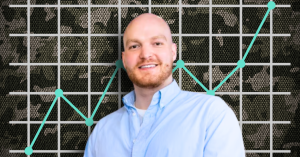Decisions we think we make rationally are actually purely about emotions, short-term temptation, and blind spots in the mind beyond awareness, described iconic behavioral psychologist Dan Ariely in his Predictably Irrational. Same goes for the important topic of money. Real wealth does not begin with choosing the right broker or investment strategy. Real wealth starts in your head, where you know your emotions and dreams that drive your money decisions.
Why do emotions dictate our money?
With all the investment experience in the world, too many can’t keep themselves in check with the proper emotional mindset. The temptation of quick payoff usually gets the better of them. Ariely summarizes an experiment in which subjects were offered a choice: $100 now or $120 in a month. Most picked the smaller, sooner reward, even though the mathematical better choice was to wait.
This also happens in investing. Individuals seek quick gains by falling prey to questionable deals such as “double your money in a month”, speculative investments, or active trading. They behave on an emotional basis instead of rational calculation, even though they are aware that even professionals do not beat passive index strategies very often.
I’ve also witnessed firsthand as an investment advisor how emotions ruin financial success. Clients who were earning tens of thousands of dollars a month couldn’t invest due to their splurging it all on luxuries. They didn’t even have a financial safety net even though they were earning money.
Others labored diligently saving their initial $100,000 and then started to trade on a whim as soon as they could muster $80,000 to $90,000, hoping to “beat the market.” They eventually lost most of what they saved. Their emotions and need for quick profits negated years of solid work.
How financial marketers exploit our emotions
In the quest for quick money, most become victims of clever financial marketers. Television and print advertisements touting “guaranteed returns,” “computerized trading systems,” or “select investment opportunities” set our fear of missing out and love of quick money ablaze.
Remember a common rule: if it sounds too good to be true, chances are it will be. Patience, prudence, and acceptance of inherent market risks form the foundation of good investment strategies. Even veteran investors cannot give assurances of returns, as markets are volatile.
So, how to know if you have found a trustworthy financial or investment advisor?
A true advisor will never guarantee sky-high yields or demand particular stocks.
Their biggest work is keeping you disciplined, interpreting markets, making budgets, and consistently achieving financial goals. Nowadays, a financial advisor is transforming from a ‘tools expert’ to a ‘financial thought designer’.
Beware if you’re promised profits or hawks some investment products with pushy sales tactics without independent examination. A quality advisor thinks about your personal objectives, risk tolerance, and time horizon instead of presenting off-the-rack solutions.
Boredom: The Investment Secret
As George Soros once so succinctly said: “If investing is fun, if you’re having fun, you’re probably not making any money. Good investing is boring.”
In fact, disciplined investing has nothing to do with exciting trades or impressing others. It’s about steady, intentional accumulation of capital with good, thoughtful choices. It means resisting short-term urges for ultimate rewards.
A huge influence on my consulting approach was studying Stoic philosophy. I saw how the principles of Seneca and Marcus Aurelius about distinguishing between what can be controlled and what cannot be controlled perfectly adapt to working with capital.
The Stoic approach in practice means that I advise clients to focus on the quality of their decisions, not on short-term market results. You should build portfolios where you are ready for any scenario — both emotionally and financially.
This aligns with recent research in behavioral economics. According to JPMorgan, investors who make decisions based on emotions receive significantly lower returns compared to those who stick to a strategy. A philosophical approach is not an abstraction, but a practical tool for better results.
The 10% “sandbox” strategy: Discipline and experimentation in balance
To contain your innate tendency to play the gambler without putting your fundamental savings at risk, use the “sandbox” approach. Split your portfolio into two segments:
-
- 90% – A nucleus of index funds, bonds, real estate, etc., handled with the highest degree of discipline and reason.
- 10% – Space for financial experimentation with speculative stocks, cryptocurrencies, or friends’ business ideas. This leaves space for aggressive exploration without jeopardizing your financial security.
This approach maintains emotions under control, preventing irrational choices while keeping space for innovation.
The power of your financial environment
Your social circle significantly influences your spending as well. Consciously create relationships with people who are used to saving, investing, and making budgets. Be around like-minded individuals, mentors, and partners who will motivate you to make and accomplish your goals.
Personally I admire the FIRE (Financial Independence, Retire Early) movement that is not so much about retiring early as it is a mindset: how do you build a life where you’re not just free from work, but free to decide what to create.
I believe this movement is great because it gets people to think about capital not in monetary terms, but in terms of freedom. It transforms the paradigm of financial advising — from simple accumulation to intentional deployment of resources.
How to start your financial freedom journey?
-
- Set your long-term financial goals and write them down.
- Examine your spending habit and identify the areas that can be streamlined. Design a disciplined savings plan, no matter how little.
- Draw up a disciplined investment plan according to your goals and risk tolerance.
- Surround yourself with people of like mind who appreciate money as you do and inspire you by example.
- Invest in self-education: read books, attend seminars, and learn from mentors. A one-hour conversation with an experienced professional is generally worth more than a hyped-up online course.
- Practice mindfulness in financial choices: don’t make emotional purchases and view discipline as an indicator of a healthy long-term strategy.
Remember: the path to riches is one of small but consistent steps in the right direction. Learn, become disciplined, make valuable connections—and success will follow. I wish you the very best of luck on your journey!








